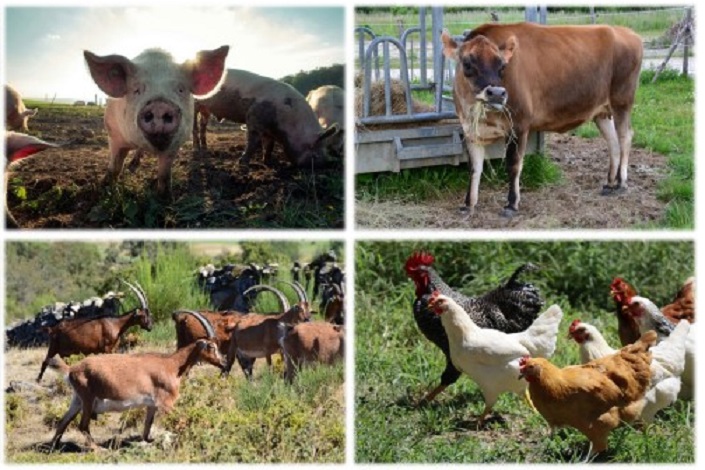Animal Task Force, New Vision Paper for a Sustainable Livestock Sector in Europe

The Animal Task Force (ATF) has released a new Vision Paper outlining the challenges, priorities, and strategies for driving innovation and sustainability in Europe’s livestock sector. This document updates previous versions, reflecting recent developments in European sustainability and food system resilience. It emphasises the role of research and innovation in enhancing diverse livestock systems’ contributions to providing nutritious, safe animal products and various goods and services.
The paper focuses on European terrestrial livestock, including ruminants, horses, rabbits, pigs, and poultry, advocating for improving the sustainability of intensive systems and promoting the growth of low-input systems. It highlights the importance of responsible livestock systems in sustainable agri-food chains, and addresses the role of methane emissions, noting that emissions from stable animal populations do not accumulate in the atmosphere, but instead tend to reach an equilibrium. Reducing greenhouse gas emissions further can help achieve the “Methane Pledge” from COP26.
Livestock-based food products contain high quality protein and provide other important nutrients, such as micronutrients, in greater amounts or bioavailability than plant proteins, supporting dietary needs, especially for vulnerable populations like young women and the elderly. But aside from the food supply, the paper outlines how livestock can positively impact the environment by recycling biomass, utilising marginal lands, and improving biodiversity through grassland maintenance. Important ecosystems services provided by grasslands maintenance clearly extend far beyond their direct economic value for animal production systems.
The paper also addresses the often-recommended short-term solution of a sharp reduction in EU livestock production and warns that the simplistic plant versus animal or extensive versus intensive positioning should be avoided. The authors argue that reducing European livestock production could increase global environmental impacts due to displaced production. Instead, they call for promoting systems adapted to diverse EU farming landscapes, maximizing synergies, and meeting consumer preferences at affordable prices.
Livestock farming supports many sustainable development goals, providing non-food products and contributing to resilient agri-food systems. It can also provide some ecosystem services more easily than the crop farming such as employment in marginal rural areas, landscape management and habitat preservation with grassland and associated hedges and to some extent soil fertility. Closer integration with cropping systems can enhance resource management, reduce emissions, and contribute to circular agriculture, by recycling biomass, using organic fertilisers, and providing by-products.
The Paper outlines pathways for progress, including improving efficiencies through sustainable intensification, enhanced circularity, diversification of many elements from breeds to landscape and even dishes. The paper also outline the potential for use of digital technologies like sensors, robotics, IoT, and AI to improve efficiency, traceability, animal welfare, and sustainability in livestock farming.
The ATF Vision Paper sets future priorities, emphasising the critical role of research and innovation in developing sustainable livestock systems. Europe has a significant opportunity to continue and improve its leadership in sustainable livestock production, leveraging such research and innovation to shape future practices.